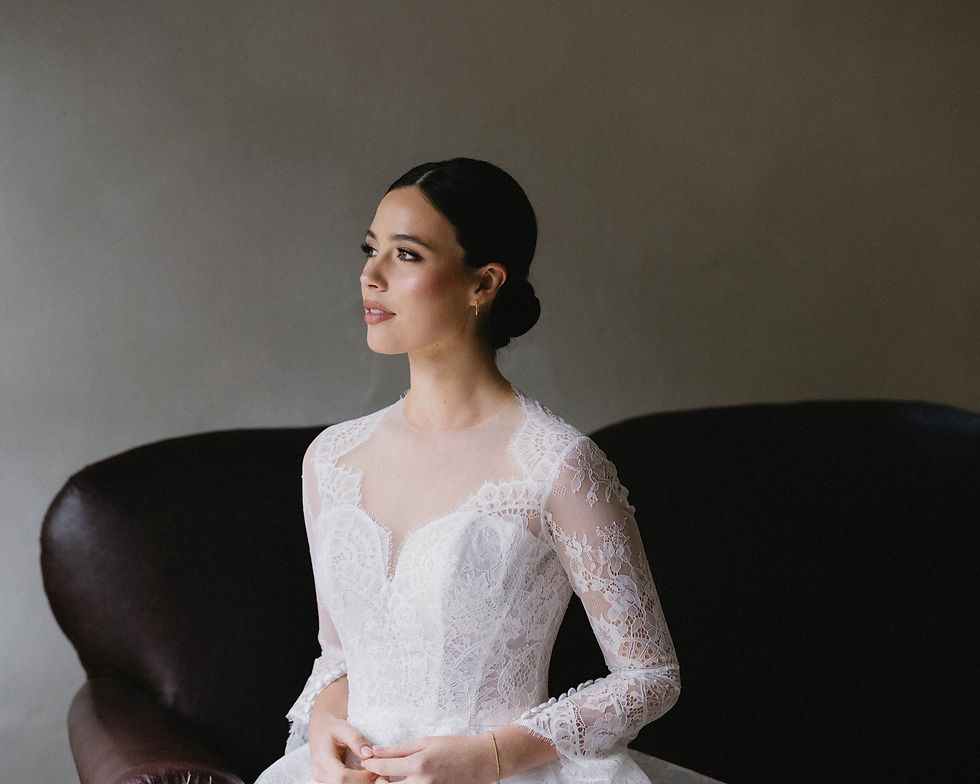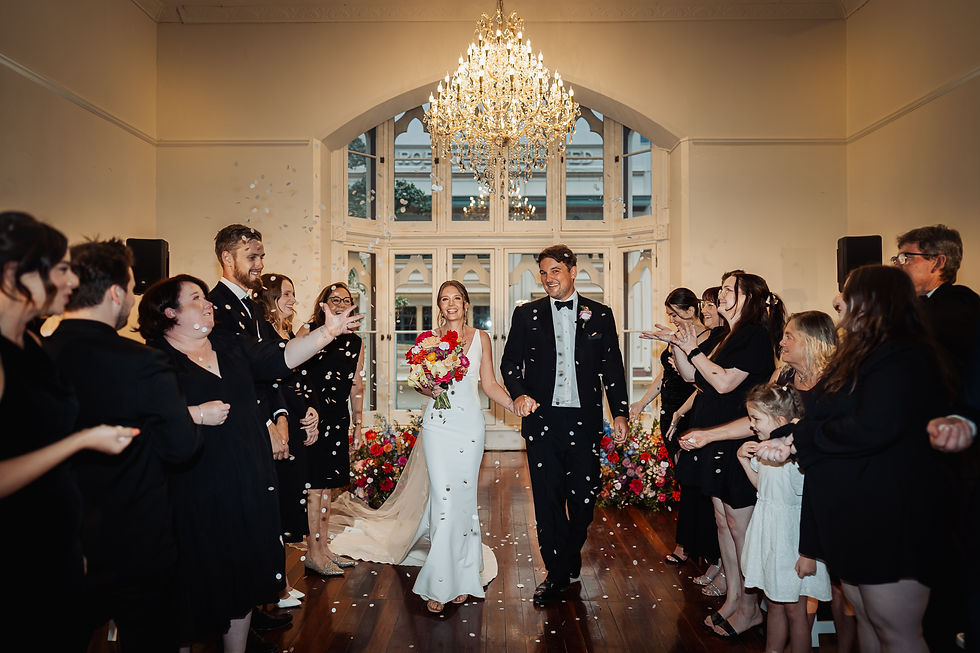Make your Wedding Perfect with this 8 steps
- Irish Josel Cahinde
- Mar 4, 2022
- 6 min read
A wedding is the most important day in a woman's life. It is a day that she will cherish forever and remember with nostalgia. So it is only natural that she want to make everything as perfect as possible. here are a few tips to help you get started on your own:
1. Make a list of everything you need to do

Making a list lets you keep track of all the things that need doing and helps you not forget anything. A great thing about lists is that you can add to them as more tasks come up.
Many brides keep their wedding planner book or binder with them at all times, so they can jot down ideas as they come to them. You'll probably want to include a calendar in your wedding planning notebook, so you can keep track of important dates.
Some brides choose to make their own wedding planner from scratch, either using a three-ring binder or a scrapbook-type album full of tabbed sections. Whichever type of book or binder you use, make sure it's big enough to hold all the information you'll need.
There are many different kinds of lists that can be made for weddings. One kind of list is called a "to do" list, which has everything that needs to be done written down on it in order from first to last. This kind of list would be helpful for people who need help remembering what needs to be done and when.
Another kind of list is called a "shopping" list, which has all the supplies needed for a certain wedding event or activity listed down on it. This kind of list would be helpful for people who need help figuring out what they need to buy and where they can buy it.
Whether you are planning your own wedding or helping someone else plan theirs, making lists is always very useful and will make planning much easier than it would otherwise be.
2. Hire a wedding planner if possible

There are a lot of benefits to hiring a wedding planner, and the number one benefit is that you don't have to plan your wedding.
The good news is that you can hire a wedding planner without breaking the bank. There are plenty of planners who work on a partial planning basis or an hourly rate, so you can get help with only the parts of your wedding — like vendor selection or managing your budget — where you need it.
Here are some of the other benefits of hiring a wedding planner:
They're an expert (and can save you money)
They know the hot spots and have working relationships with vendors
They'll handle all the details
They'll keep everyone on track and on time (including you)
They'll foresee problems before they happen
3. Research venues and vendors to find the right ones for your needs

Planning a wedding is a major project. It’s also something that many couples don’t have experience in, so it can be hard to know how to pick the right vendors and venues.
One of the best things you can do is research. Look at lots of different vendors and venues, ask friends and family members who they used, and read reviews online. Avoid making a snap decision on any one thing, because if you do that, you could end up with a vendor or venue that doesn’t measure up to your expectations.
Here are some tips for researching vendors and venues:
● Get recommendations from people you trust. Ask friends and family members who they used for their wedding or for other events such as birthday parties or anniversary celebrations.
● Look online at review sites as well as social media sites like Facebook, Twitter and Instagram to see what people say about different vendors and venues.
● Check out Pinterest boards for ideas about flowers, decorations and more. Share your own boards with your florist, baker or decorator to give them an idea of what you want.
● Consider going to bridal shows to meet potential vendors eye-to-eye before hiring them.
4. Build relationships with your vendors by visiting them in person or calling them on the phone

If you can, plan a face-to-face meeting or at least a phone call with every vendor you hire.
But if that's not possible, ask for a copy of their catalog and give them a call to talk about what they offer. While it's fine to email back and forth, there's no substitute for actually speaking to someone in person or on the phone. You'll feel better about hiring them and will be able to ask more specific questions. Plus, if you ever have any problems with anything they do, it'll be easier to get them fixed when you have a pre-existing relationship.
And, finally, don't forget to thank your vendors after the wedding! A handwritten note can go a long way toward repairing any damage that might have been done by an earlier communication snafu and will ensure they're willing to work with you again in the future.
5. Book all necessary appointments (ceremony site, reception site, photographer) six months before the wedding date

That way you'll have time to make any adjustments if someone double-books a date or location.
You can also take advantage of lower off-season rates for flowers and photographers.
Your date is not guaranteed until you sign a contract and put down a deposit.
If your wedding date is set for a popular time of year or day, make sure to book those locations as soon as possible.
Fridays and Sundays are now popular choices for weddings and may be more economical than Saturdays. Some reception halls are booked as much as two years in advance!
6. Take time off work for planning activities like dress shopping or venue visits

If you have vacation days available, this might be the best way to go. You can also ask for a leave of absence if you’re planning a long engagement.
It's important to plan ahead and use your vacation time wisely so you don't end up short when it comes time to take your honeymoon, not to mention getting back into the swing of things after tying the knot.
A survey by The Knot shows that most couples spend at least 13 months planning their wedding. Here are some of the most common reasons they take time off work:
Meeting with vendors (florists, caterers) — 56%
Tasting cakes — 50 %
Dress shopping — 44 %
Meeting with venue — 39 %
Tasting menu items — 38 %
7. Budget, so you know how much you can spend on each item

Budgeting so you know how much you can spend on each item is important so that you don't go over your budget or break the bank! You also want to have enough money left over for other things like food and drinks at your reception or an after-party with friends and family members who couldn't make it during wedding day festivities."
There are many expenses that go into planning a wedding, including venue rental fees, catering costs and dress expenses. You'll also need to factor in costs for things like flowers, photographers and videographers as well as music entertainment if you plan on hiring live musicians or DJs for your reception.
One of the most important decisions you will make when planning your wedding will be your overall budget and how much you want to spend on each item or service. It is vital to figure out how much money you want to allocate towards each aspect of your wedding day before you start shopping around for vendors, dresses, rings, etc. This will help you stay on track financially and ensure.
8. Review contracts from your venue and vendors before signing them

Before you sign on the dotted line, review your contracts with vendors and venues. These are things to look for before signing wedding contracts:
Ask if there is a required minimum. Many vendors require you to spend a certain amount of money or book their services for a certain amount of time, so make sure you read the contract carefully and figure out if it's in line with your budget.
Check what happens if you cancel. If you want to be able to cancel without penalty, ask the vendor if it's possible. Most likely, that won't happen — but some vendors may allow it. If not, find out what the cancellation terms are and what fees are associated with them so there are no surprises later.
Look for hidden fees. Some contracts include an "administrative" fee or charge more for overtime hours beyond what was agreed upon in the contract. If you're not sure about how much something costs (like transportation or food), ask ahead of time.
Check the fine print. Some vendors may require payment in full before they even show up at your wedding; others may demand that final payment be made 30 days before the event — no exceptions! Make sure you know when and how much your payments will be based on the timeline outlined in your contract so you








Comments